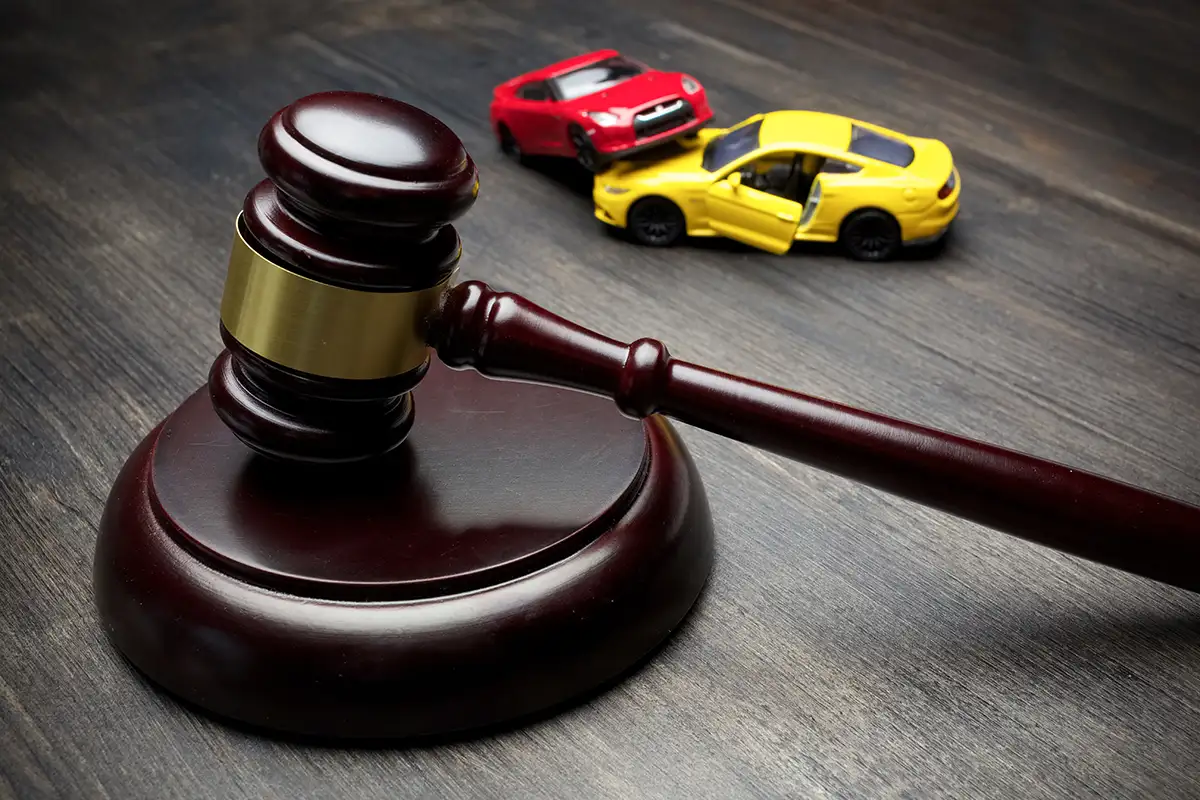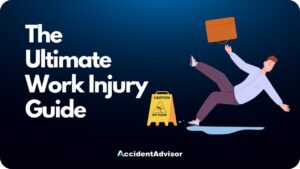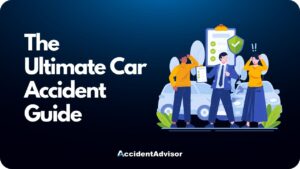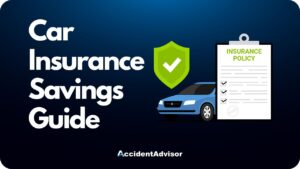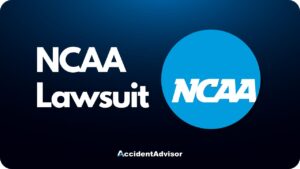If you’re being sued after a car accident, you need a game plan for the road ahead. Depending on the seriousness of the accident, the monetary damage could be considerable. You need to do everything you can to ensure that you only pay what’s fair if the accident was your fault and exonerate yourself if it wasn’t.
We compiled this information to help you act in your best interest during the process of being sued after a car crash. This includes the steps you should take following the accident, how fault is determined, and how the settlement process works.
Table of Contents
- The First Steps to Take When Being Sued After a Car Accident
- What Happens When Being Sued After a Car Accident?
- When Can You Be Sued After a Car Accident?
- How Long Does the Driver Have to Bring a Lawsuit after a Car Accident?
- How is Fault Determined in a Car Accident Lawsuit?
- Being Sued for a Car Accident in At-Fault vs No-Fault States
- What Can They Take After Being Sued for a Car Accident?
- Being Sued for a Car Accident But Have No Assets
- Should You Settle If Being Sued After a Car Accident?
- How Long Does it Take to Reach a Settlement When Being Sued?
- Can a Car Owner Be Sued for Another Driver’s Accident?
- Conclusion
The First Steps to Take When Being Sued After a Car Accident
These are the first steps you should take when being sued after a car wreck. The goal is to gather evidence that supports your innocence and avoid incriminating yourself before the settlement.
Gather documentation – This step includes getting a copy of the police report, recording the personal and insurance information of the other driver, getting witness statements and their contact information, and taking photos/videos of the scene.
Record everything you remember – While it’s fresh in your mind, record what you remember about the accident, including your actions, the timeline of events, the actions of the other driver, and anything that happened after the crash, including any incriminating statements.
Never speak to the insurance adjuster – After the accident is reported, the other driver’s insurance adjuster may arrive on the scene. Avoid speaking to them as any statements you make can be incriminating. You are also not legally obligated to speak to the other driver, so limit your statements to facts and basic information.
Cooperate with police – Though you should be cautious with the insurance adjusters, you should be cooperative with the police. Answer their questions or tell them you don’t remember. Never give them false information, even if the truth seems incriminating. Lying is the most incriminating thing of all.
Speak with a car accident attorney – Being sued after a car wreck means you need an experienced car accident attorney on your side to avoid paying everything the insurance adjuster demands. Speaking with an attorney should be one of the first steps you take after the accident.
What Happens When Being Sued After a Car Accident?
When being sued after a car crash, the lawsuit process will begin with the other driver filing their claims against you. If the case goes to court, you may be required to provide a deposition, which includes four main steps: discovery, mediation, trial, and appeal.
This means that collected evidence will be presented along with testimony and any requested medical evaluations. Then, the court will discuss the case and present its verdict. An appeal is possible if you feel that it warrants the additional legal expenses to take the case to a higher court.
When being sued after a car wreck, the most important thing to do is speak with your car accident lawyer about what’s happening and what you can do to help your case.
When Can You Be Sued After a Car Accident?
You can be sued after a car crash until the statute of limitations runs out. This statute differs by state. The conditions that lead to being sued after a car accident can alter the timeline, including determining fault, being treated for personal injuries, and more, but the statute remains the same.
The damages that you have to pay, including personal injury, property damage, and pain and suffering (discussed below), will first come out of the other driver’s personal injury protection on their insurance policy.
Their adjusters will then work with your insurers to pay as much as your coverage allows. If neither insurance company pays the full damages that the other driver believes they are owed, they may sue you for the rest.
Suing for Property Damage after a Car Accident
Depending on the fault status of your state, you can be sued for property damage after a car accident. They can sue you directly or file a product liability claim against your insurer.
Suing for Personal Injury after a Car Accident
You can be sued for personal injury costs after a car accident. Your insurance policy will pay out first, followed by their policy based on their collision insurance and personal injury protection. After that, they can file a personal suit for the remaining damages, which could include their current and future medical treatments, medication costs, and therapy.
Suing for Pain and Suffering after a Car Accident
You can be sued for pain and suffering after a car accident if you have been deemed negligent. Pain and suffering is based on a number from 1 to 5 that describes the non-medical injuries like depression and loss of earning potential that the other driver has sustained.
How Long Does the Driver Have to Bring a Lawsuit after a Car Accident?
The statute of limitations defines how long a driver has to file a lawsuit after a car accident, usually around four years. However, the statute differs by state, with some as high as 6 years (New Jersey) and some as low as 1 year (Kentucky).
This number not only differs between states but also differs within the same state depending on whether the claim is for personal injury or property damage. This means that even years after the accident took place, the other driver can still file a suit against you depending on the state laws where the accident took place.
How is Fault Determined in a Car Accident Lawsuit?
Fault is determined in a car accident lawsuit by the judge or jury’s assessment of the evidence. The evidence includes the testimonies of both drivers and any relevant witnesses, the police report of the scene, the medical documentation of the injuries sustained, the assessments of the insurance adjusters, and the claims of both sides’ legal representation.
To establish fault, the court looks at several factors, including whether each driver exercised their duty of care or breached it, whether their actions caused the accident, and who suffered the damages.
Being Sued for a Car Accident in At-Fault vs No-Fault States
Being sued for a car accident is a different process depending on whether the accident occurred in an at-fault or no-fault state. There are 12 no-fault states, whose state laws require the insurance companies to pay the damages based on the coverage provided regardless of which driver was at fault for the accident.
At-fault states order payouts based on fault, either by percentage or in totality depending on the fine print of the state laws. The evidence provided also differs depending on the state’s fault status. If you are being sued after a car crash, ask your attorney how your state’s fault status will influence your case.
What Can They Take After Being Sued for a Car Accident?
Unfortunately, the other driver can take your financial assets after you have been sued for a car accident. To pay off their medical costs, property damage, and pain and suffering, the court may order a considerable settlement, especially if severe injuries or a fatality are involved.
Their ability to take your personal property beyond your financial assets differs by state law. In most places, courts can only order this after a judgment in their favor, meaning they have to win the suit to take your possessions. Your primary residence and retirement account are examples of assets that they likely will not be able to take under any circumstances.
Being Sued for a Car Accident But Have No Assets
If you are sued for a car accident but have no assets, the money you owe becomes debt that you eventually have to pay off. In that case, the court will likely turn over your payments to a collection agency, which will collect the money from your over time.
The pressure from a collection agency can result in a loss of property, real estate, and all viable financial assets. If you are being sued after a car wreck, you want to make sure to win the case against you so that your life isn’t at the mercy of a debt collector.
Should You Settle If Being Sued After a Car Accident?
If you admit to being at fault for the accident, your best bet is to settle with the driver out of court to avoid a costly case. If you deny responsibility for the accident or the other driver refuses your settlement, the case will go to court anyway. Either way, legal representation is essential, either to help you settle or to defend you in court.
Settling helps in a few ways, not the least of which is avoiding costly legal proceedings. An out-of-court settlement for an accident for which you were at fault also avoids some of the legal ramifications of the accident, which will come to light if the case goes to trial.
How Long Does it Take to Reach a Settlement When Being Sued?
The length of time it takes to reach a settlement when being sued depends on what each party is willing to admit and how each legal team believes they should proceed. If both parties agree on who was at fault and successfully negotiate a settlement, you may be paying the other driver’s settlement in a few weeks.
However, cases that go to trial can take months or even years to reach a settlement. The statute of limitations also implies that the other driver has several years in most states to prepare their case and assess the damage before suing you.
Can a Car Owner Be Sued for Another Driver’s Accident?
Yes, in some states a car owner can be sued for another driver’s accident. However, the liability will often be limited, with caps based on state law and on the drivers’ injury protection.
Just remember that an insurance policy is attached to the car, not the driver. The insurers will get involved in an accident no matter who is driving because they’re covering the vehicle. So you can still be sued after a car wreck even if you weren’t driving.
Can Parents Be Sued for a Child’s Car Accident?
Parents can be sued for a child’s car accident if injuries or property damage occur. The damages can be the result of negligence or misconduct, but the parent still bears the financial responsibility for the child’s accident.
Conclusion
After learning you are being sued after a car accident, you may be scared that the other driver will win a huge settlement against you. To prevent this from happening, follow the above steps for protecting yourself after the accident. Hire an experienced car accident attorney to walk you through the process of defending yourself so you can prove your innocence, or pay a fair amount for the damages you may have caused.

Rocky Horton
Author
Rocky Horton is a health and safety expert from Chapel Hill, NC. He is the founder of AccidentAdvisor and has been featured in Forbes, Bloomberg, and other publications. Learn more.

